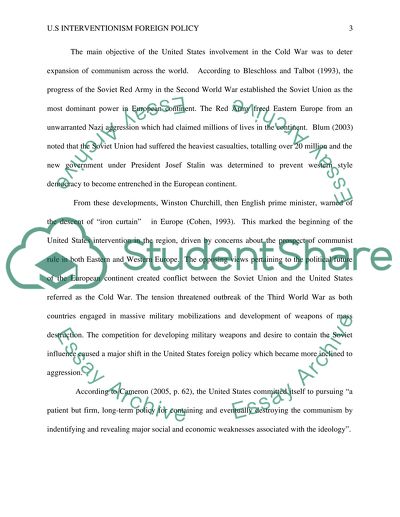Cite this document
(“US Post Cold War Interventionism Foreign Policy Essay”, n.d.)
Retrieved from https://studentshare.org/english/1443277-us-post-cold-war-interventionism-foreign-policy
Retrieved from https://studentshare.org/english/1443277-us-post-cold-war-interventionism-foreign-policy
(US Post Cold War Interventionism Foreign Policy Essay)
https://studentshare.org/english/1443277-us-post-cold-war-interventionism-foreign-policy.
https://studentshare.org/english/1443277-us-post-cold-war-interventionism-foreign-policy.
“US Post Cold War Interventionism Foreign Policy Essay”, n.d. https://studentshare.org/english/1443277-us-post-cold-war-interventionism-foreign-policy.


